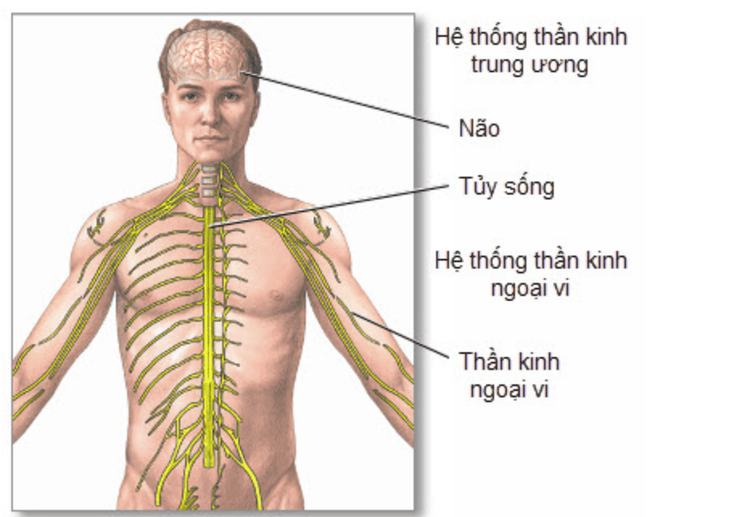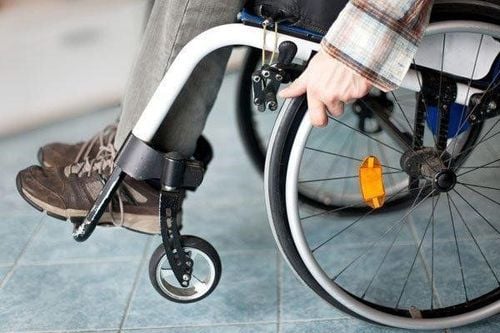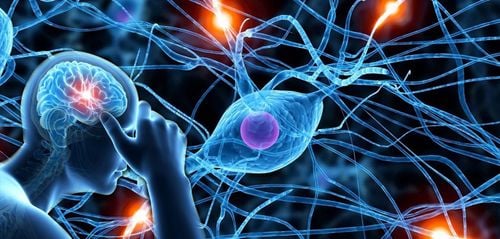This is an automatically translated article.
Language is considered one of the higher functions of the central nervous system. Accordingly, if the patient has symptoms of aphasia, it is considered to have neurological defects due to brain damage.
1. What is aphasia?
Aphasia syndrome is defined as acquired disorders at any stage, affecting the patient's language ability. The root cause of damage to the functions of language is damage to the central nervous system, which results in loss of functional integrity of the brain hemispheres in general, including language. Therefore, the classification of speech disorders is very diverse, depending on the area of the lesion and has different treatment methods.
However, aphasia needs to be distinguished from speech disorders. These are abnormalities in motor processes for expression and language development, not CNS damage.

Hội chứng mất ngôn ngữ do các tổn thương trên hệ thần kinh trung ương
2. What are the causes of aphasia?
Diseases that cause progressive nerve damage such as glioma, degenerative or multiple sclerosis, will cause the progression of language ability to gradually worsen.
In contrast, acute brain injuries such as cerebral infarction, cerebral hemorrhage, encephalitis, traumatic brain injury or surgically benign brain tumor will have the ability to restore speech function if the disease progresses smoothly. profit.
However, in cases of bilateral brain damage, this is a huge barrier to language recovery.
3. How are symptoms of aphasia manifested?
Symptoms of aphasia are identified and evaluated in different aspects by experienced neurologists. Thereby, these symptoms will help determine the location and cause of the damage and often accompany the symptoms of stroke, cerebral infarction.
Usually, the symptoms of aphasia will be approached according to the classifications of a language disorder across the three abilities of comprehension, fluency and repetition. There are the following syndromes of language disorders:
Broca's language disorder: Signs of comprehension are good, but fluency and repetition are reduced. Often accompanied by weakness and loss of sensation on the right side of the body.

Người bị rối loạn ngôn ngữ Broca thường yếu và liệt nửa người bên phải
Transcortical motor language disorder: Still has good comprehension and repetition, but does not express the language fluently. The typical presentation is that the patient changes pronunciation and the tone of speech becomes confused. Transcortical sensory language disorder: Speech retains good fluency, good repetition while comprehension is reduced. Specifically, the patient can still speak long clear, grammatically correct and fluent sentences that are not appropriate to the question. Mixed transcortical language disorder: The patient has both decreased fluency and decreased comprehension while the ability to repeat is still good. Specifically, the patient can only speak spontaneously, short sentences tend to repeat the same when asked questions. Wernicke language disorder: Patients still express themselves verbally fluently with long, smooth, grammatically correct sentences; Pronunciation and speech rhythm are normal. However, the ability to listen, understand and do the right request or answer the question correctly is poor. Conductive language disorder: Only causes impaired repetition while comprehension and fluency are still good. Accordingly, the patient still correctly answered the questions with long, fluent sentences. However, when asking the patient to repeat a sentence or retell the story, read the words out loud, the words become confused and there is a phenomenon of word substitution. Generalized language disorder: The most severe of the language disorder classifications. The patient has severe loss of all speech functions, including motor and sensory language functions.

Có nhiều biểu hiện của triệu chứng rối loạn ngôn ngữ
4. How to treat aphasia syndrome?
Of all the methods of speech therapy, there is no one method that is best suited for all patients. Therefore, the treatment focuses on the goal to be achieved, not merely improving the patient's speech function. For example, the patient can be taught to use pictures or symbols if the patient is severely impaired.
Besides, repetition and diligence are also very important in the language recovery process. This should be maintained during the patient's stay in the hospital for rehabilitation training and until discharge from the outpatient therapy program. At this time, the supportive and interactive role of caregivers and family members can also help speed up recovery.
The duration of therapy in aphasia syndrome is almost lifelong, parallel with the recovery of other neurological functions. However, the time to evaluate the effectiveness of a treatment is usually at least 3 to 6 months.
If the goal is not achieved, treatment failure is often due to the wrong goal setting or the wrong choice of method rather than the effectiveness of the method. If goals have been achieved, the patient should be encouraged to continue to practice with himself and with others to further refine fine language functioning in the long term.
In summary, aphasia syndrome is a manifestation of defects caused by damage to the central nervous system. The causes, symptoms and treatment are varied, depending on the specific situation. It is important to identify the right approach and determine the right goals of therapy, patients will have a better prognosis for recovery of language ability. To help find the cause of aphasia, patients need to conduct paraclinical tests at a reputable and quality medical facility. Currently, Vinmec International General Hospital is one of the leading prestigious hospitals in the country, trusted by a large number of patients to examine and treat neurological diseases, including aphasia syndrome. Not only the physical system, modern equipment: 6 ultrasound rooms, 4 DR X-ray rooms (1 full-axis machine, 1 light machine, 1 general machine and 1 mammography machine) , 2 DR portable X-ray machines, 2 multi-row CT scanner rooms (1 128 rows and 1 16 arrays), 2 Magnetic resonance imaging rooms (1 3 Tesla and 1 1.5 Tesla), 1 room for 2 levels of interventional angiography and 1 room to measure bone mineral density.... Vinmec is also the place to gather a team of experienced doctors and nurses who will greatly assist in diagnosis and detection. early signs of abnormality in the patient's body. In particular, with the space designed according to 5-star hotel standards, Vinmec ensures to bring the patient the most comfort, friendliness and peace of mind.
Please dial HOTLINE for more information or register for an appointment HERE. Download MyVinmec app to make appointments faster and to manage your bookings easily.













